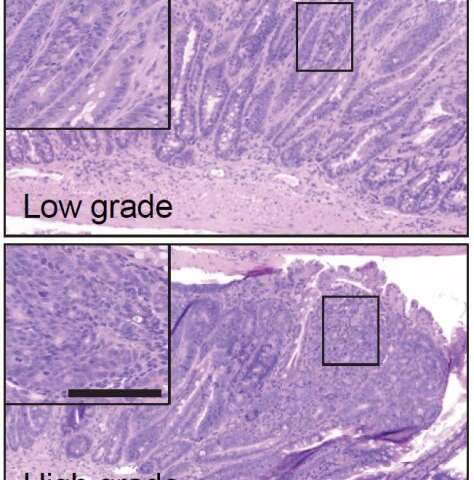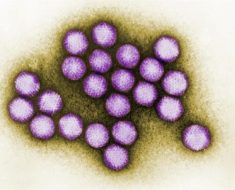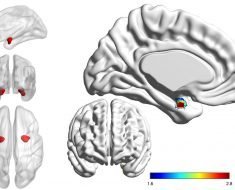
Benign intestinal tumors with mutations that delete or inactivate two particular tumor-suppressing genes develop more quickly towards cancerous forms, according to new research from the Crick.
There are various types of cancer that affect the intestines, including cancers in either the small or large intestines. These intestinal cancers can develop from initially benign tumors which over time become cancerous. For example, colorectal cancer is a common cancer with over 1.8m new cases each year.
The study, published in the EMBO Journal, found that if two genes, NEDD4 and NEDD4L, are deleted in benign tumor tissue in the intestines, the tumor creates more stem cells and so more rapidly develops into a tumor that is more likely to become cancerous.
The researchers found that these two genes produce enzymes which inhibit a process called Wnt signaling, which is important in cell growth and determination. If these genes are deleted or become ineffective, this Wnt pathway becomes more active and this stimulates another gene, LGR5, to produce more intestinal stem cells.
When the researchers removed the NEDD4 and NEDD4L genes in mice and in intestinal organoids, “mini-organs” which mirror the behavior of organs in the body, they found that without either or both of these genes, stem cells were produced more quickly. When these genes where removed from benign tumors, the tumors produced more stem cells and developed more quickly into a form that could become cancerous.
“By understanding the impact that the deletion of these two genes has on tumors, and how important it is in the evolution of cancers, this research helps to brings us one step closer to new therapies that could slow down tumor development, for example by blocking the Wnt pathway,” says Laura Novellasdemunt, lead author and postdoc in the Crick’s Stem Cell and Cancer Biology Laboratory.
In tests with mice that have benign colon tumors, when both of these genes were removed, the mice died on average 25 days earlier than the mice with the genes. This mimics records of human cancer which have linked having an inactive NEDD4L gene with a poor prognosis.
Source: Read Full Article





